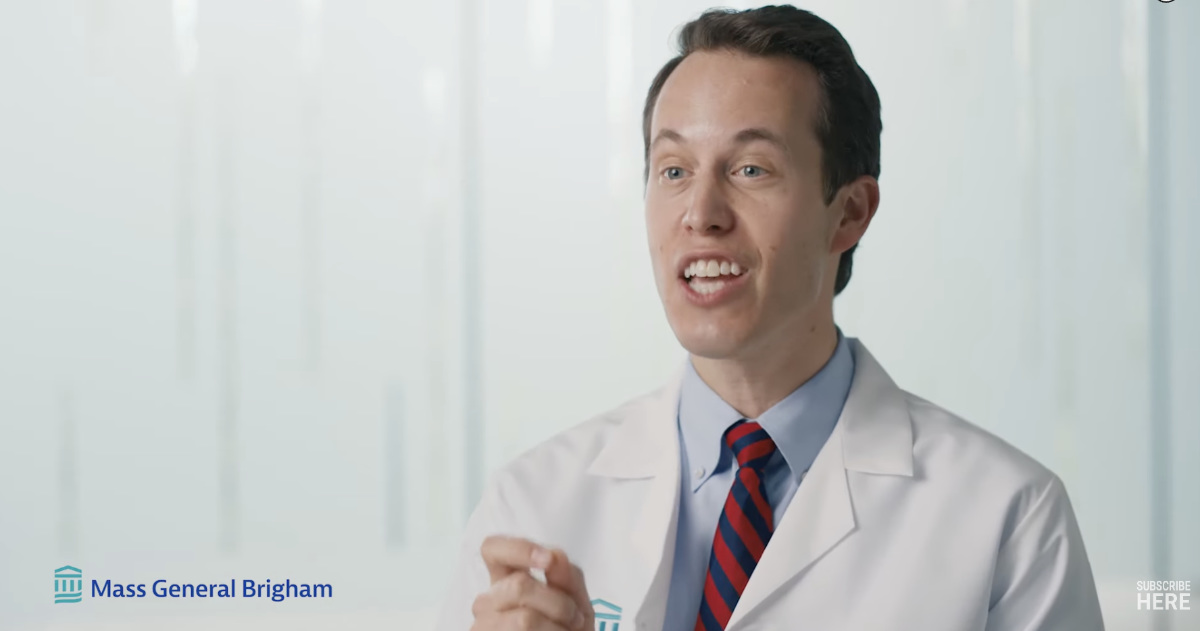Dr. Brian Skotko isn’t just the director of the Down Syndrome Program at Massachusetts General Hospital in Boston. He’s a Harvard-educated, board-certified medical geneticist, an author, a public speaker… and older brother to Kristin, who has Down syndrome. He’s dedicated his life to Down syndrome research, advocacy, and education, and in a recent interview with Word On Fire, he spoke about the value of his work and and what has changed in recent years.
Skotko began by explaining that both his sister and his patients with Down syndrome teach him valuable lessons.
“They teach me to pause when I am tempted to rush, to feel when I want to rationalize, to cherish bronze when I am looking for gold,” he said. “Yet the Down syndrome community pushes me beyond just happy life lessons; its families have gifted me a deep sense of purpose. Rather than focusing on my ego-centric dramas, I am reminded daily that our work is far from over in ensuring that all neurodiverse persons are valued.”
He further added that having a child with Down syndrome is not the negative outcome many assume it to be.
“Families are not looking for pity. Quite the contrary: nearly 99% of people with Down syndrome state that they are happy with their lives; 88% of their brothers and sisters believe that they are better people because of their sibling; and 79% of parents feel that their outlook on life is more positive because of their child,” he said. “The Down syndrome of today is not the Down syndrome of yesteryear. That’s not because the genetics have changed; we have.”
One big thing that has changed is prenatal testing. This pro-life tool, which can and should be used to allow families to medically and emotionally prepare for a child with disabilities or abnormalities, has been hijacked to weed out those who society deems to be “unfit.” Additionally, the way a diagnosis is delivered can have devastating consquences. This negativity continues, even though resources are available to change that; Skotko said that prenatal testing companies need to adhere to reporting guidelines, and doctors need better training on delivering a diagnosis.
“Gold-standard resources to support expectant couples are available after years of collaborative work between medical organizations and disability advocacy groups. In my opinion, we have an outpaced implementation challenge,” he said. “The science of prenatal testing has been on a bullet train in recent years, but these resources and support for expectant couples trail behind on a Conestoga wagon. Expectant couples have indicated that the information that they do receive from clinicians about genetic conditions is often incomplete, inaccurate, and dated. Negative memories of these diagnostic conversations are often more vivid, intense, and visceral than people’s recollection of tragedies like 9/11.”
Those negative diagnoses have led to tragedy, as Skotko outlined in his interview.
“We estimate that in recent years, there were 36% fewer babies with Down syndrome than could have been born in the US because of selective terminations. Annually, in our country, this amounts to about 5,100 babies with Down syndrome being born, and 3,900 fetuses with Down syndrome being selectively aborted,” he explained. “The reduction of babies with Down syndrome has steadily risen in Europe over the past 40 years to over 50% today—as high as 83% in Spain, 80% in Portugal, and 71% in Italy. New Zealand and Australia closely follow, at 71% and 66%, respectively. We found that abortion coverage for a Down syndrome diagnosis was covered fully by government funding in 52.4% of these countries in 1990, and that number increased to 73.8% in 2021.”
Additionally, for the people with Down syndrome who do survive pregnancy, finding health care can be a challenge — especially for adults. Skotko is working to change that.
“More than 95% of people with Down syndrome in the US do not have access to a specialty clinic like the one that my team and I implemented at Massachusetts General Hospital. They are simply seen by primary care providers, but it is unreasonable and impractical to think that today’s providers can stay up-to-date on the medical guidelines for every genetic condition,” he said, adding, “Simply put, we are on a mission to democratize health care for people with Down syndrome around the globe.”








